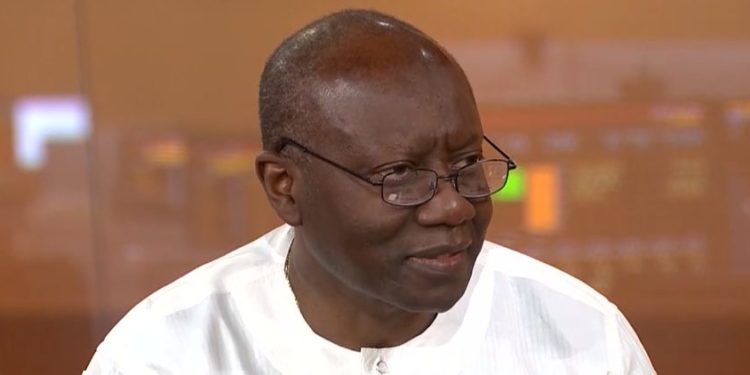Ofori-Atta’s exit sparks investor concern amid debt restructuring talks
While Mr Ofori-Atta’s departure initially sparked investor apprehension, reassurances from economists like Anim signal a commitment to navigating Ghana’s financial challenges with resilience and continuity, underscoring the nation’s pursuit of economic stability amid transitional phases in governance.
The exit of Ken Ofori-Atta from his role as Ghana’s Finance Minister has prompted a cautious response from international investors, who fear potential disruptions to the country’s debt restructuring negotiations, particularly ahead of the December 2024 elections.
Mr Ofori-Atta had been steering the nation’s efforts to alleviate its hefty debt burden amidst economic uncertainties.
President Nana Akufo-Addo on Wednesday, February 14, 2023, appointed Mohammed Amin Adam, Member of Parliament for Karaga, as the new Finance Minister.
While concerns loom over possible delays in debt restructuring talks, economist Daniel Ameteye Anim reassures stakeholders that the transition will not derail upcoming negotiations with the country’s eurobond holders.
In an interview with Asaaseradio, Mr Anim underscored the institutional nature of the negotiation process, emphasizing its continuity beyond individual ministerial changes. He stressed the imperative for seamless handover, ensuring that ongoing negotiations proceed unhindered under the new minister’s stewardship.
“This is an institution that he was in charge as a finance minister so wherever he has gotten to in terms of negotiations and arrangements [ on debt restructuring] all that ought to been done is to walk the incoming minister through the process and the new minister can then meet the team that has conducted the negotiations [on debt restructuring] with the multilateral creditors as well as the impending one with eurobond holders.”
“It will be fatal on our part if a minister leaves office and the country cannot continue with transactions that are of benefit to the state then it will be a very big failure in terms of governance and leadership.”
“So, my view is that his [Ofori-Atta’s] exit will not affect any arrangement that we are having with our creditors,” he remarked.
Ghana’s debt restructuring endeavors have assumed paramount importance, given the country’s substantial liabilities, including a hefty US$13 billion owed to private creditors holding eurobonds. Mr Ofori-Atta had spearheaded these efforts following Ghana’s default on a significant portion of its external debt in December 2022, amidst mounting debt servicing costs and inflationary pressures.
Despite these challenges, Ghana’s economy has shown signs of resilience, supported by a US$3 billion loan program with the International Monetary Fund (IMF) and successful negotiations with official creditors such as China and France.
Recent engagements with bondholders and advisors aimed to finalize a debt restructuring deal, with Ghana aiming for resolution by mid-February. The objective remains a straightforward debt restructuring plan, facilitating the exchange of old bonds for new ones.
While Mr Ofori-Atta’s departure initially sparked investor apprehension, reassurances from economists like Anim signal a commitment to navigating Ghana’s financial challenges with resilience and continuity, underscoring the nation’s pursuit of economic stability amid transitional phases in governance.
Source:norvanreports


